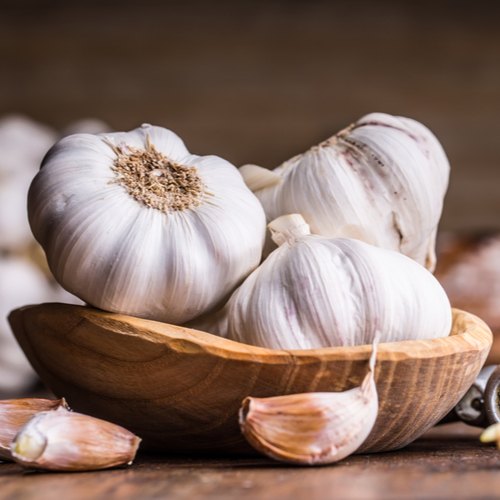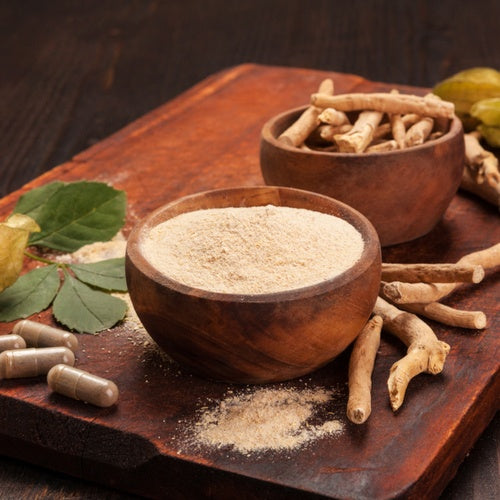Introduction
It seems that medicine has done a full 360.
Back in ancient times, the doctors of the day believed that certain diseases originated from imbalances in the stomach, a term they called hypochondriasis. In Ancient Greek, hypochondrium refers to the upper part of the abdomen. As science and technology evolved, making it possible for bacteria, parasites and viruses to be detected under a microscope, the concept of hypochondriasis was rejected. Over time, the meaning of the word changed too- it began to refer to someone who was unduly worried about having a serious medical illness.
However, in the last couple of decades, medicine has again recognised the role the gut has to play in many illnesses and chronic diseases. It appears that the ancient concept of hypochondriasis does actually hold quite a bit of truth and modern medicine is only just beginning to latch on.
The term “leaky gut” has been attracting a lot of hype in recent years. It has been associated with many various diseases and not only with those related to the gastrointestinal tract. But what actually is “leaky gut”?
What Is Leaky Gut?
Leaky gut, technically known as intestinal hyperpermeability, is essentially where your intestinal lining is porous. This intestinal lining is extensive, covering more than 4,000 square feet of surface area. Along this intestinal tract, we have many microvilli, which are finger-like hairs that increase the area of absorption in our gut and help to absorb our nutrients and eliminate waste. If they get damaged, it can lead to the intestinal barrier becoming “leaky” and our intestinal lining becoming porous.
It’s like a sieve which you use in cooking to separate the liquid and smaller particles from the larger ones. Your intestines have small “pores” likes that, allowing only liquid or very small molecules to go through. If the intestinal wall is damaged and “hyperpermeable,” this allows things like waste products and toxins, food proteins, bacteria and other compounds to seep through the membranes and enter the blood stream.
The immune system then mounts a response to what they see as foreign bodies in the bloodstream leading to inflammation, immune dysregulation and subsequent diseases.

Intestinal Permeability: The Regulators
Now some leakiness is normal. A number of different factors control how permeable, or how much like a sieve, the gut is.
For example, proteases and antiprotease enzymes are responsible for cleaving certain receptors on the cell surfaces of the intestinal wall influencing its permeability. They also help to reduce inflammation by supressing the activity of specific cytokines and growth factors.
Another important component in the regulation of gut permeability is zonulin. Zonulin is a protein that is synthesised in intestinal and liver cells and helps to modulate the permeability of the gut barrier. An increase in zonulin makes the holes of the “sieve” bigger, allowing large particles to pass through into the bloodstream and through the body.
One the most important regulators of intestinal permeability is your gut flora. Having a balanced gut microbiome is essential to keeping those tight junctions of your intestinal wall intact. An imbalanced gut microbiome can cause inflammation and hyperpermeability of the gut wall, leading to overgrowth of bad bacteria, yeast and fungi to enter through the gut wall.
Leaky Gut and Disease
Okay, so we get what leaky gut is but what is the big deal?
The reason leaky gut is such a huge issue is that the bacteria, toxins, food proteins and other larger molecules, once they’ve passed through the damaged wall, are recognised as foreign bodies in the blood stream. This makes the immune system go haywire, causing inflammation and immune dysregulation.
Leaky gut plays a significant role in not only gastrointestinal conditions such as coeliac disease, Crohn’s and Irritable Bowel Syndrome, but recent studies have shown that it is associated with a range of other conditions such as arthritis, allergies, asthma, autism, liver disease, obesity, mental illness and a host of autoimmune diseases including lupus, multiple sclerosis, Hashimoto’s thyroiditis and Rheumatoid arthritis.
How Can You Tell If You Have Leaky Gut?
Leaky gut can present itself in various ways but common symptoms include:
- Food sensitivities
- Sinus problems
- Fatigue
- Constipation and/or diarrhoea
- Joint pain and inflammation
- Migraines and headaches
- Acne, rosacea and other skin problems
- Weight problems
- Reflux
- Anxiety and/or depression
So what actually causes leaky gut in the first place?

Causes of Leaky Gut
Leaky Gut Syndrome may be triggered by improper diet and food sensitivities, exposure to environmental toxins, bacterial imbalance & chronic stress.
-
Dietary Triggers
1. Food sensitivies
Food sensitivities are the main cause of symptoms associated with leaky gut. Food sensitivities or intolerances are considered one of the fastest growing chronic diseases which affects more than 20% of the population in industrialised countries. Exposure to food antigens can trigger rapid gut inflammation leading to barrier hyperpermeability, sometimes termed ‘leaky gut’. With food sensitivities, symptom onset is often delayed by many hours and an individual is usually reactive to a number of different foods.
2. Gluten and Gliadin
Gluten and gliadin, proteins from wheat, are one of the main triggers that increase zonulin levels. As we’ve already seen, increased zonulin leads to the intestinal lining becoming leaky. Even in people who do not have celiac disease, the gluten and gliadin proteins that are found in wheat can trigger the release of zonulin and increase intestinal permeability.
3. Caffeine
Not only does caffeine overstimulate the acidity in the stomach, caffeine also looks similar to gluten so your body may also react to coffee proteins if you are already sensitive to gluten.
4. Dairy
Casein, a protein in dairy products, also increases inflammation of your gut as pasteurization destroys enzymes, making the lactose sugar hard to digest.
5. Sugar
Sugar is the main fuel for yeasts, bad bacteria and parasites in our system leading to what is known as dysbiosis, an imbalanced number of bad bacteria to good bacteria in our gut ecosystem. The toxins produced from dysbiosis trigger inflammation which leads to leaky gut.
6. Alcohol
Sorry to be a party pooper but alcohol can damage the gut lining in a number of different ways. Besides the sugar contained in it, alcohol can also damage the pancreas which can then decrease digestive enzyme secretion. Digestive enzymes are what breakdown and digest the food you eat and being able to digest your food well is one of the cornerstones of healing a leaky gut. It also reduces the production of prostaglandins which keeps inflammation in check.
7. Genetically Modified Foods
Lectins are concentrated in GMO foods, making them more damaging to your gut.
-
Other Triggers
1. Toxins
Every day we are exposed to thousands of toxins. Industrial pollutants, petrochemicals, heavy metals, pesticides, food additives, pharmaceuticals, cleaning products, hygiene products and cosmetics and plastic compounds are now a given part of everyday life. Whilst your body has a natural capacity to process and eliminate toxins, those systems are now under immense pressure from the level of assault inflicted from modern-day life. Studies have shown that environmental toxins have the ability to disrupt your delicate gut ecosystem, inhibiting their vital metabolic functions and causing inflammation. The toxins also act like fire and scorch your intestinal lining leading to Leaky Gut.
2. Stress
Your intestinal mucosa is assailed by a network of nerve fibres and neuron cells bodies that are influenced by signals from the brain. Thus the brain can easily affect gut function. Studies have shown that your gut is especially vulnerable to the presence of chronic stress which can cause changes in gastric secretion, gut motility and the permeability of the intestinal wall.
3. Medication
Some rather common medications cause leaky gut including corticosteroids, antibiotics, antacids and some medications for arthritis. Watch out for the fillers in some medications too- some contain inflammatory fillers such as gluten.
4. Hormonal Imbalances
Imbalances in various hormones including oestrogen, progesterone, testosterone, thyroid hormones and stress hormones can also cause leaky gut as your intestines depend on the correct hormone levels to function properly.
5. Vitamin D Deficiency
Evidence shows that vitamin D deficiency can lead to gastrointestinal inflammation and dysbiosis of your gut microbiome. Sufficient vitamin D is vital to protecting your gut lining against damage in order to protect against invasion by pathogens.
Natural Solutions to Fixing a Leaky
Gut Fortunately, there are ways to healing a leaky gut and decrease your risk of many chronic diseases. It is vital to both treat the cause and heal the existing damage through diet and supplements. Healing a leaky gut can be done in four simple steps:
1. Remove the drivers that are damaging the gut
Now everyone is different and determining what foods are triggering you is important, however, the common ones include gluten, wheat, dairy and eggs. It can also be corn, nuts, tomato and much more. It’s also important to avoid sugar, caffeine, GMO foods and unsprouted grains as much as possible.
Try to reduce your toxin exposure as well. The worst offenders are chronic non-steroidal anti-inflammatory use, regular antibiotic use, pesticides, food additives and tap water.
2. Mitigate stress with some key stress management strategies
Making sure you get enough sleep, exercising, getting out in nature and practicing gratitude are some great ways to alleviate stress. Supplements can also help to balance your adrenal glands, the ones responsible for producing your stress hormones.
3. Balance your gut microbiome
After figuring out and removing the drivers, add some gut-healing foods such as green smoothies, bone broths, prebiotics and probiotic foods. Probiotics are various forms of good bacteria which are necessary to rebalance the gut ecosystem by overpowering the bad guys by increasing the good guys. Some food sources include sauerkraut, kimchi, kombucha and coconut yogurt with live bacteria.
It’s also ideal to obtain probiotics from a mix of food and supplement forms. Make sure you buy high strength and high quality probiotics with a variety of different strains.
4. Supplement with nutrients to restore healthy gut function
Getting in there with some gut-healing supplements is vital.
-
Nutrients such as zinc and magnesium
Nutrients such as zinc and magnesium are essential for the production of stomach acid to be able to break down your food properly as well as for the immune system, detoxification and stress management.
-
Digestive bitters or enzymes
Digestive bitters or enzymes helps to ensure your food is fully digested as poorly digested food particles and proteins damage the intestinal wall. Supplementation helps to minimise large, indigested particles of food escaping into the blood stream.
-
L-Glutamine
L-Glutamine is another great nutrient. Glutamine is an essential anti-inflammatory amino acid necessary for that repair and maintenance of your gut lining. It also supports immunity during stress.
-
Vitamin A
Vitamin A maintains mucous membranes and healthy immune function.
-
Vitamin D
Vitamin D is vital to protecting the lining of your gut and managing dysbiosis.
-
Turmeric (curcumin)
Turmeric (curcumin) is a powerful anti-inflammatory agent to help normalise gut health and function.
-
Quercetin
Quercetin, a plant flavonoid, improves gut barrier integrity as well as reduces the release of histamine present in allergic reactions.













What Do You Think? Comment Below: